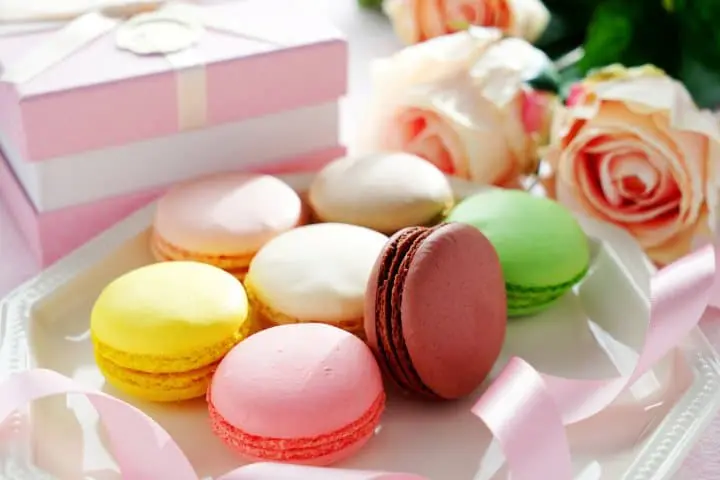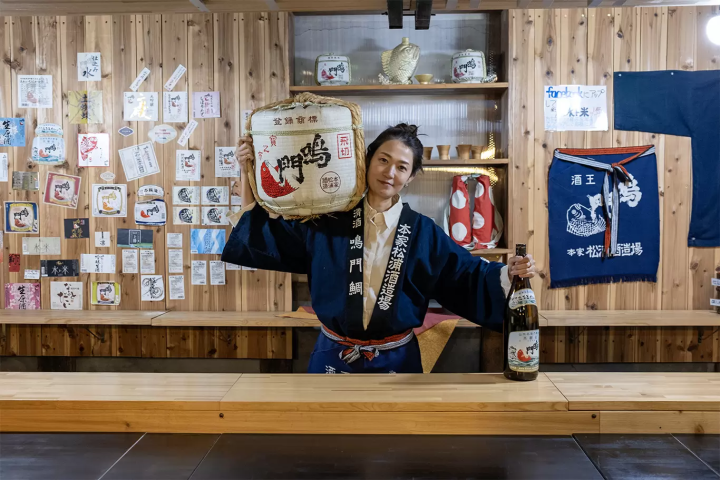White Day: Japan's March Valentine's Day

On March 14, Japan celebrates White Day, the day on which men give gifts back to women in appreciation of what they received on Valentine's Day. In this article, we explain the origin of this event and what to give on this day.
White Day in Japan

Photo by Pixta
White Day is the day when a man who received chocolates on Valentine's Day gives back a gift of sweets to the person that gave them to him.
On Valentine's Day in Japan, women usually give chocolates gifts to the men they love or appreciate. There is no exchange of presents. However, the following month, men return the favor by giving back.
In this article, we explain the origin of this holiday and introduce a few interesting facts about it.
Why Is It Called 'White' Day?
In the 1960s, when Valentine's Day first came to Japan, it wasn't customary for a man who received chocolate to return the favor at all, but then the idea of giving a different gift in return began to spread. However, the name "White Day" wasn't used until much later.
The first recorded usage of the term was in 1980. A confectionery shop called Ishimura Mansei-do and the National Confectionery Industry Association starting referring to March 14 as White Day, and from there the event went country-wide.
The day is also celebrated outside of Japan, notably, in South Korea and Taiwan, and some parts of China.
There are many theories surrounding the origins of the name, but the reason appears to be that white gives a sense of purity, and the younger generations tend to use it in expressions of love.
What to Give Someone on White Day

Giving chocolate on Valentine's Day is the norm. But what should you give someone on White Day?
Most people give things like marshmallows, cookies, and candy. However, each sweet has a different connotation, and must be chosen with care. We will introduce the meanings one by one.
1. Marshmallows: Love or Hate?

Before White Day came into its own in the 1970s, marshmallows were popular. Particularly chocolate covered in marshmallow were said to stand for the girl's feelings (chocolate) returned covered in pure love (marshmallows). More recently, due to the fact that marshmallows melt and dissolve, they are being passed out with the meaning of I dislike you.
Marshmallows might be something to avoid on White Day.
2. Cookies: Let's Remain Friends

What could a cookie possibly mean? Unlike candy and marshmallows, cookies are crunchy. Apparently, this is taken to mean a "casual" or "dry" relationship. Thus, it is said to mean "you are just a friend".
3. Hard Candy: I Like You

photo by pixta
Candy means I like you. This is because candy is something you hold in your mouth and enjoy the sweet taste of over longer periods of time. This is something that will please someone if they like you.
There are of course some exceptions to the above categories. Although macaroons tend to be classed along with cookies, as they also have a slightly high class feel to them, they are said to express that the recipient is someone special. However, all of these meanings are relative to place, person, and even generation, so it isn't uncommon at all for Japanese people to be unaware of the meanings introduced here. Ladies, there is no need to feel down if you got marshmallows on White Day.
FAQ
What is the white Valentine's Day in Japan?
In Japan, "White Day" is observed on March 14th, exactly one month after Valentine's Day. While Valentine's Day in Japan is typically celebrated by women giving chocolates to men, White Day reverses the roles. On White Day, men are expected to reciprocate by giving gifts, usually chocolates or other thoughtful presents, to the women who gave them gifts on Valentine's Day. The name "White Day" is derived from the idea of giving white-colored gifts, symbolizing purity and sincerity. White Day has become a significant part of Japanese culture and is a time for expressing appreciation and returning gestures of love and kindness.
What is the meaning of white Valentine's day?
"White Valentine's Day" is not a widely recognized or established term in the context of Valentine's Day celebrations. In Japan, as previously mentioned, "White Day" is the counterpart to Valentine's Day, taking place on March 14th, where men reciprocate gifts to women who gave them chocolates or gifts on Valentine's Day. The term "White Day" in Japan signifies the tradition of men giving gifts to women, often in the form of white-themed presents like white chocolates, cookies, flowers, or other thoughtful items, as a way to show appreciation and return the gesture of love and affection received on Valentine's Day.
What is 3 14 in Japan?
In Japan, 3.14 corresponds to March 14th. This date is significant as it is celebrated as White Day in the country, where men traditionally reciprocate gifts to women who gave them chocolates or gifts on Valentine's Day. White Day is a popular observance in Japan and other East Asian countries, emphasizing the exchange of tokens of affection and appreciation between individuals.
What is the gift for white valentine's day?
On White Valentine's Day in Japan, men traditionally give gifts to women as a reciprocal gesture for the chocolates or gifts received on Valentine's Day. Common gifts for White Day include white chocolates symbolizing purity and sincerity, cookies, sweets, flowers such as white roses, accessories like jewelry or scarves, and personalized items showcasing thoughtfulness and care. This day serves as an opportunity for men to express appreciation and return gestures of love or friendship to the women who made romantic or platonic gestures on Valentine's Day, with each gift carrying sentiments of gratitude and affection.
What does the White Day symbolize?
White Day in Japan symbolizes reciprocity, appreciation, and the expression of feelings of love and friendship. As a counterpart to Valentine's Day, where women traditionally give gifts to men, White Day reverses the roles, with men presenting gifts to women who had previously gifted them on Valentine's Day. The color white, often associated with purity and sincerity, is significant on White Day, representing the heartfelt intentions behind the gifts exchanged. This observance emphasizes the importance of reciprocating gestures of affection and gratitude, fostering deeper connections and reinforcing relationships through the exchange of thoughtful presents.
What countries celebrate white valentine's day?
White Day is celebrated annually on March 14, one month after Valentine's Day, when people give reciprocal gifts to those who gave them gifts on Valentine's Day. It began in Japan in 1978; its observance has spread to several other East Asian nations like China, Taiwan, South Korea and countries worldwide.
Do girls give chocolate on White Day?
In countries where White Day is celebrated, such as Japan and South Korea, it is mainly an occasion for men to give gifts to women as a response to the chocolates or gifts they received on Valentine's Day. Women traditionally give chocolates to men on Valentine's Day in these cultures, and in return, men reciprocate with gifts on White Day. The dynamic of men giving gifts on White Day and women expressing their affections through chocolate gifts on Valentine's Day is a unique cultural tradition in these regions.
If You're in Japan, Enjoy White Day!
While not to the same degree as Valentine's Day, White Day has its own events, with special corners in sweets shops, department stores, and supermarkets. If you happen to be in Japan, it's definitely something you will want to check out.
If you received chocolate this Valentine's Day, try giving something back on March 14!
埼玉在住。休日はベース弾いたり映画鑑賞したりしてます。洋楽はRed Hot Chili Peppers、Primus、Sum41、Linkin Park、Muse、The Byrds などが好きです。映画はジャンル問わずいろいろ観ます。 日本の魅力をみなさんに伝えていきたいと思います。




































![[ Naruto City, Tokushima Prefecture ] Experience the world's largest whirlpools up close on a sightseeing boat at the Spring Whirlpool Festival!](https://resources.matcha-jp.com/resize/720x2000/2025/02/05-222727.webp)
![[Niigata] Skiing and snowboarding are just not enough! Fun snow spots for parents and children](https://resources.matcha-jp.com/resize/720x2000/2026/01/29-256901.webp)


![[Gunma, Nakanojo] Experience Japanese history in a wooden school building from the Meiji era](https://resources.matcha-jp.com/resize/720x2000/2025/12/25-254022.webp)